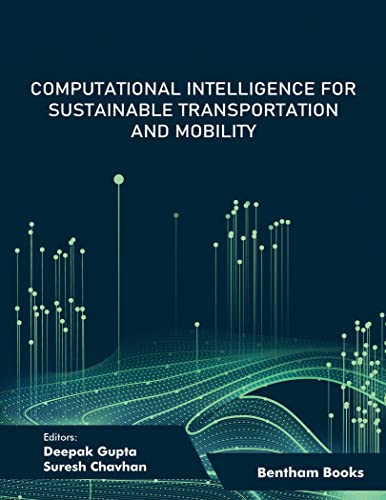
English | 2022 | ISBN: 1681089459 | 145 pages | True PDF EPUB | 27.31 MB
New technologies and computing methodologies are now used to address the existing issues of urban traffic systems. The development of computational intelligence methods such as machine learning and deep learning, enables engineers to find innovative solutions to guide traffic in order to reduce transportation and mobility problems in urban areas.
This volume, Computational Intelligence for Sustainable Transportation and Mobility, presents several computing models for intelligent transportation systems, which may hold the key to achieving sustainable development goals by optimizing traffic flow and minimizing associated risks. The book begins with the basic computational Intelligence techniques for traffic systems and explains its applications in vehicular traffic prediction, model optimization, behavior analysis, traffic density estimation, and more. The main objectives of this book are to present novel techniques developed, new technologies and computational intelligence for sustainable mobility and transportation solutions, as well as giving an understanding of some Industry 4.0 trends.
Readers will learn how to apply computational intelligence techniques such as multiagent systems (MAS), whale optimization, artificial Intelligence (AI), deep neural networks (DNNs) so that they can to develop algorithms, models, and approaches for sustainable transportation operations.
Key Features
- Provides an overview of machine learning models and their optimization for intelligent transportation systems in urban areas
- Covers classification of traffic behavior
- Demonstrates the application of artificial immune system algorithms for traffic prediction
- Covers traffic density estimation using deep learning models
- Covers Fog and edge computing for intelligent transportation systems
- Gives an IoT and Industry 4.0 perspective about intelligent transportation systems to readers
- Presents a current perspective on an urban hyperloop system for India



